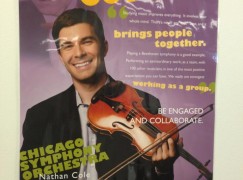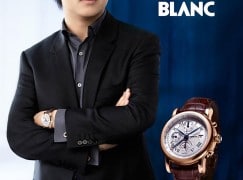Why I walked out on the Chicago Symphony
mainFrom an entertaining memoir by Nathan Cole, associate concertmaster of the LA Philharmonic:

The following day, I moved back to my assigned seat near the back of the second violins. I began marking some fingerings in the toughest passages. Since I was sitting on the audience side, or the “outside” of the stand, my markings went above the notes. At least that’s how things had always worked…
As I put in my first set of numbers, my stand partner made a sound, a kind of groan cut short. I looked over, the point of my pencil still on the page. “Did you want my markings on the bottom instead?”
“We don’t mark fingerings here,” he said.
“Here, you mean at this spot?”
“I mean in this orchestra.” His face softened, and he added, “Sorry, you’re probably used to seeing them, right?”
I was indeed used to seeing fingerings as a matter of course. My mind was fairly blown.
“How do you play all this music then?”
My stand partner paused, as if he’d never considered the question before.
“Practice?” he suggested.
Read on here.






Comments